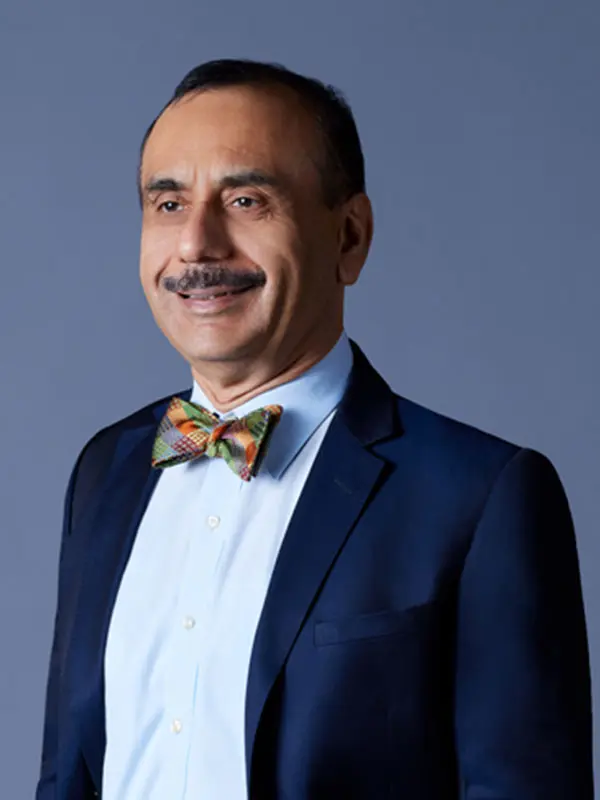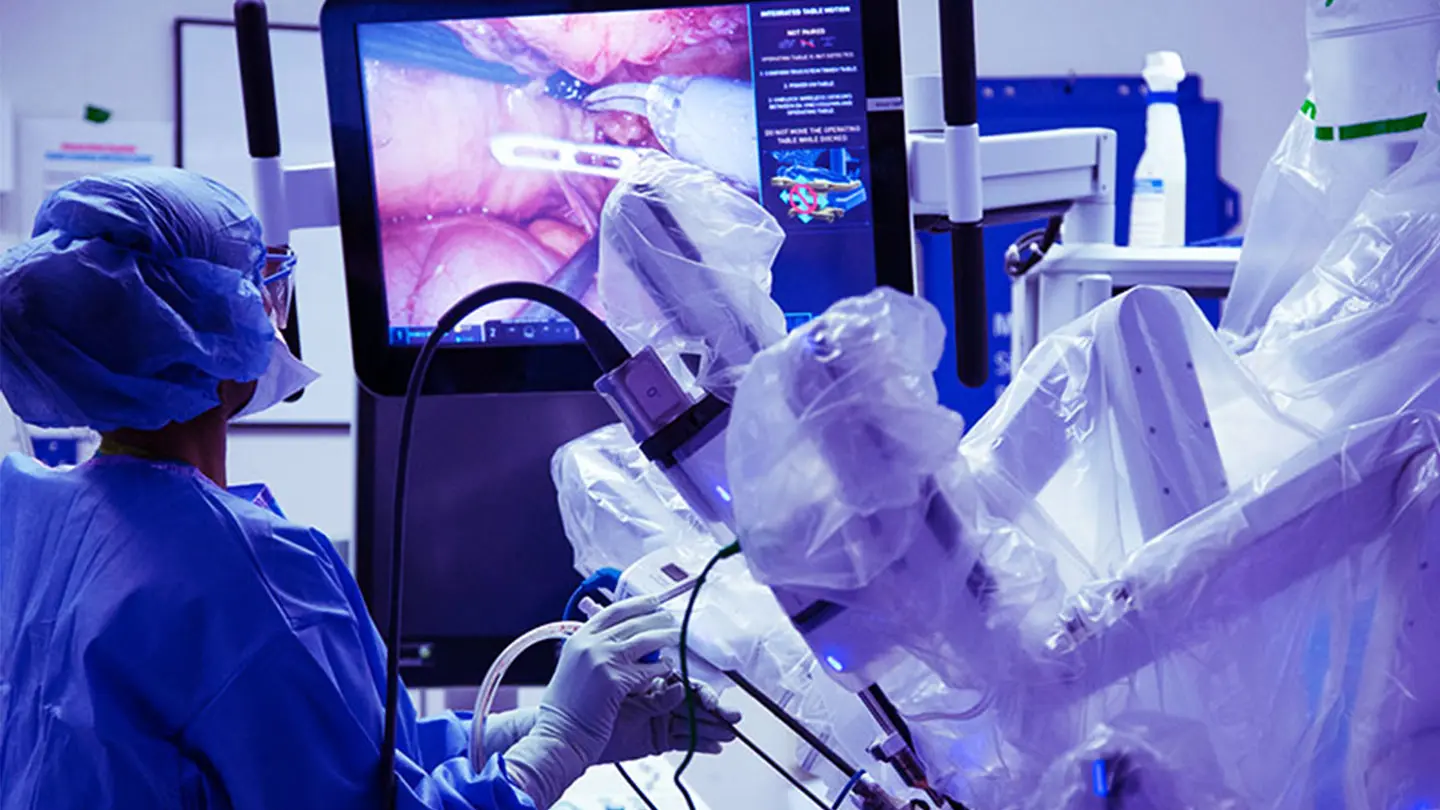The year 2020 was an unprecedented one for the Milton and Carroll Petrie Department of Urology at the Icahn School of Medicine at Mount Sinai and the Mount Sinai community as a whole. The COVID-19 pandemic put our normal operations on hold for weeks as our doctors, nurses, and staff joined in the fight against the pandemic. Mount Sinai was the epicenter of the epicenter, treating thousands and thousands of patients with COVID-19 and saving many lives. Every facet of the Mount Sinai Health System was called upon in this heroic effort, and the Department of Urology was one of the first to answer that call.
I have never been prouder of my colleagues than I was as we served our patients and city with untiring dedication just when they needed us most. It is our obligation as researchers and clinicians to provide rigorous evidence-based knowledge during this global health crisis and to develop therapeutic options to address COVID-19 as the pandemic evolves. The work to combat the virus and prostate cancer is urgent and critical.
I am proud of our team and our anti-fragile mindset. We took care of our patients, and we took care of each other. We published more research than ever before, we rebounded our patient treatment volume to a higher level than where it was before the COVID-19 lockdowns, and we raised more than $13 million in research funds in 2020.
While the fight against COVID-19 continues and our faculty contribute to understanding the disease to better prevent and treat it, we have returned to treating patients for urologic disorders, managing complex cases, and continuing innovative research.
One of the most significant advances made in 2020 was to use a single-port robot to perform radical cystectomies with a urinary diversion. The bladder cancer program has completed 15 of these surgeries so far, advancing upon the previous standard of four-port robotic radical cystectomies. This advancement shows promise in shortening hospital stays and returning patients to a regular diet versus the four-port procedure.
On the minimally invasive surgery front, we have introduced Rezum™ Water Vapor Therapy as a minimally invasive surgical treatment that uses convective water vapor thermal energy to treat benign prostatic hyperplasia. In addition, we are researching using a robotic single-port approach to living donor nephrectomy, which may allow for faster recovery and shorter hospital stays among patients versus standard laparoscopic living donor nephrectomy.
We are excited about the launch of our Comprehensive Kidney Cancer Center that brings together our extensive expertise in radiology, immunology, genomics, and clinical care to develop new diagnostic tools, pioneer more minimally invasive approaches to surgery, and conduct research that results in new therapeutic targets and treatments. We continue to make progress on diagnosis of kidney tumors and are developing a method in which we use an MRI as a non-invasive alternative to a biopsy to determine whether a tumor is cancerous.
The Kidney Stone Center continues to work on solutions to staghorn calculi in ways that move beyond surgery into lifestyle changes to help prevent the formation of staghorn calculi in the first place, new treatments, and postoperative regimens to help prevent recurrence. Our surgical approach is more precise and less invasive, leading to a shorter recovery time and a lower risk of complications.
We developed a breakthrough in robot-assisted radical prostatectomy that addresses the competing priorities of cancer control, maintenance of urinary continence, and recovery of sexual function. Early return of continence after surgery without compromising positive surgical margin rates is observed. The “Hood Technique” preserves post-surgical quality of life by preserving important muscle and nerve structures around the prostate.
With new faculty on board, we are looking to solve one of the major challenges of our gender affirmation program: the ability to provide patients with genitalia that is not only functional but also aesthetically acceptable. Transplanted genitalia may be the way of the future and allow for more complete gender affirmation surgeries.
Our research team has found that men face a greater risk of infection and death from COVID-19 and that some of these risk factors are also risk factors for prostate cancer. We have also found an overlap between biomarkers for COVID-19 and renal cell carcinoma that may lead to targeted therapeutics for kidney cancer patients with COVID-19.
Continuing our research and innovation, we are working with two new National Institutes of Health grants to focus on the mechanisms that drive renal cell carcinoma and erectile dysfunction among men who undergo radical prostatectomy. A better understanding of what leads to post-operative complications may help encourage men who would otherwise live with the cancer to undergo necessary procedures or treatments.
As part of the recognition we have received for our research, I was elected President of the Society of Urologic Robotic Surgeons. In addition, Steven Kaplan, MD, was elected Chair of the American Urological Society Office of Research.
We are grateful to be the recipients of a generous gift of $4 million from Lizzie and Jonathan Tisch to support prostate health. The gift enables us to continue our research on topics such as racial disparities in prostate cancer mortality, as well as continue to offer the highest quality of care to our patients through technological and clinical innovations.
New faculty who have joined our Department in 2020 include Neha Malhotra, MD, Assistant Professor of Pediatric Urology, and Babu Padanilam, PhD, Director of Kidney Research.
Continuing our work to train the next generation of urology clinicians and researchers, our program added five new residents in 2020 as well as five new clinical fellows.
Finally, we would like to pay tribute to our friend Roger Taylor. Roger served on the Chairman’s Urology Board for many years and was a tireless advocate for our Department. Roger passed away from prostate cancer this past year, but the work he did will continue to help us in the fight against prostate cancer.
Featured

Ash Tewari, MBBS, MCh, FRCS (Hon.)
Professor and System Chair, Milton and Carroll Petrie Department of Urology, Director of the Center of Excellence for Prostate Cancer at The Tisch Cancer Institute at the Icahn School of Medicine at Mount Sinai, and Surgeon-in-Chief of the Tisch Cancer Hospital at The Mount Sinai Hospital
